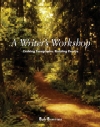 |  A Writer's Workshop: Crafting Paragraphs, Building Essays Bob Brannan,
Johnson County Community College
Adjectives and Adverbs: Words that Describe
Summary1.One of the ways we add information to sentences is to use adjectives and adverbs. Adjectives tell us about nouns and pronouns. Adverbs tell us about verbs, adjectives, and other adverbs. |
 |  |  | 2.Comparatives and superlatives are adjectives or adverbs that compare two or more people or things using an -er ending or an -est ending. |
 |  |  | 3.Good is an adjective while well is an adverb, unless well is used to describe physical state of being as in: "The prisoner does not feel well." |
 |  |  | 4.Intensifiers such as really, very, extremely, awfully and incredibly can often be removed to achieve clarity, emphasis and economy. |
 |  |  | 5.Besides choosing the correct form for adjectives and adverbs, we sometimes have problems clearly connecting them to the word they intend to describe. When a single modifier or a word group at the beginning of a sentence describes the wrong following word or no word at all, it is said to dangle. Ex.: "After walking to the mailbox my dog howled, and I realized I hadn't locked the gate." |
|



 2002 McGraw-Hill Higher Education
2002 McGraw-Hill Higher Education